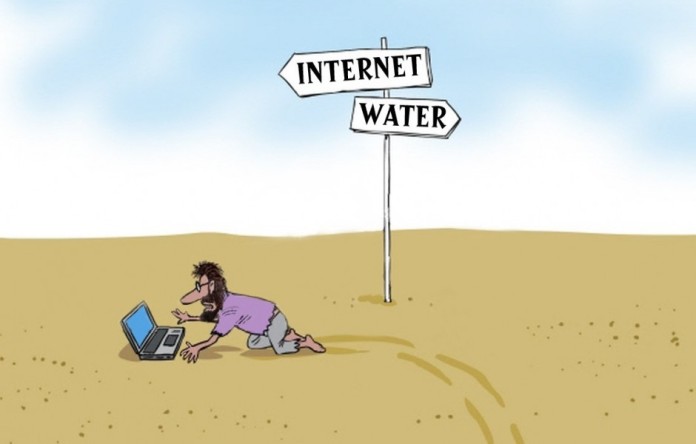
The list of positive impacts that technology has on society is long and glorious, yet new research suggests that the impact of technology may not be all that positive for children, especially those who spend several hours each day glued to electronic screens.
Screen addiction has fast become a common issue facing youth.
A 2010 Kaiser Family Foundation study found that on average, 8- to 10-year-olds spend almost 8 hours each day with a variety of different media, while preteens and teenagers, 11- to 18-year olds spend more than 11 hours each day with media devices. Often these media addicts spend many hours focused on electronic screens without eating, bathroom, or sleeping breaks.
The rise in media addiction has held to the development of institutions to handle the growing social problem.
In China, some children have been diagnosed with a clinical disorder from media overuse. Along the major thoroughfares in cities like Beijing, rehabilitation centers use medical therapy to isolate children from media screens to which they have become addicted.
Not only is media addiction unhealthy for normal development in children and teens, it also becomes a monumental social problem when unhealthy behaviors become entrenched in individuals by adulthood. Electronic gadgets have posed further problems for children who bring their addiction to their interactions with society.
A growing problem in the United States is texting while driving. In cities like New York and Chicago, young people between 20 and 35 years of age – grouped by the phrase millennials – have uncontrollable desires to use their phones while operating heavy and dangerous machinery (cars).
There have been increasing numbers of automobile collisions, including those involving fatalities, due to unsafe phone use habits. Still, the nation refuses to take the issue of screen addiction seriously.
Advocates for controlling reckless driving linked to poor use of electronics say that harsh penalties for texting while driving offenses will lead to a change in dependency on electronic media, especially while driving.
However, no country-wide policies in the U.S. have shifted focus to social problems, but instead continue to focus on policing nonviolent offenders for “drugs” whose activity only impacts their individual bodies, unlike the activities of texting-while-driving-offenders whose careless behaviors impact other more responsible drivers on the road.
Meanwhile, when media addiction spreads rampant, thousands of American citizens are harmed at the hands of electronics users each year.
In spite of the evidence, parents expose children to media at early ages–handing their babies and toddlers cell phones and tablets before they have developed verbal communication abilities, in place of interacting meaningfully with parents, siblings, extended families, and their surrounding environments.
How can parents condone such behaviors in children that lead to media addiction, when doing so shows no commitment to nurturing children to be more productive citizens?
In large part, parents all over the globe are failing to circumscribe limits on their children’s media use, perhaps because children’s increasing consumption of media frees up time for parents’ own media use.
Across the world, however, the message is becoming clear that parents should limit their children’s media use, especially at young ages.
For instance, the American Academy of Pediatrics, in a 2013 policy statement, urged parents to restrict their children’s media use: “A child’s brain develops rapidly during [the] first years, and young children learn best by interacting with people, not screens.”
The academy also recommends that older children should spend much less time with media, only 1-2 hours a day rather than the 8-11 hours older children currently spend before electronic screens. Instead, children should spend more time playing outside and using their imaginations. Even the 1-2 hours max should be filled with high-quality content media, a barrier that should carefully set.
With technology having an ever-increasing presence in our lives, it becomes more imperative to place boundaries on our societal value of technology. Regular conversations about children’s technology use are necessary to ensure that it does not compete with our societal understanding of an ideal upbringing for children.
Families, communities, schools, and government should be highly involved in charting a path, free of media addiction, for development and success for young people.










So what should parents who are addicted to media do about their children who are addicted to media? Oh, well, there is a new vicious cycle.
Cell phones, ipads, tvs and video games have become the new toys for every child. It’s a big fat problem. A suppose people who do not want to parent have found this a new way to really stop parenting altogether.
The day television was introduced, the world changed for something. The worst is yet to come. These children, when they finally are grown, will look like demons in front of screens. It’s gonna happen, hook or crook so long as Apple, Facebook, Google, Microsoft and the rest deem is necessary, hell even their calling to force every Tom, Dick and Harry to use their applications. The world must brace itself for the worst. This is just the beginning.